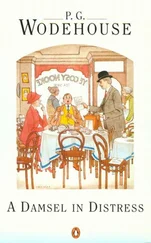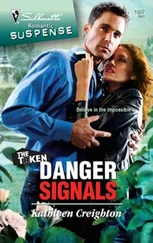Many of the Wherrytowners hadn’t known that Otto had escaped, and now they were both angry and alarmed. They didn’t want an African at large, amongst their fields and flocks and families. What kind of man was he, they asked. Could he do any harm? What kind of flesh might he hunt for? What magic did he know? Would it be wise to send for soldiers, or could they hope the cold and snow had finished him, just like the captain said? Comstock was too angry and too thwarted to say much. He wanted just the privacy of Alice Yapp in bed. She held his arm again and they set off for the inn. But one or two of the Americans were quick to tease the Wherrytowners with tales of Otto’s superhuman strength, his tiger temper and his monstrous appetite: ‘I’ve seen him chewing leather boots.’
‘ And he likes human hams!’
‘Flesh pudding.’
‘Finger pie.’
And then another added, ‘Make sure your daughters don’t give birth to Africans.’
Aymer volunteered his expertise. He was recovered now, or, at least, he had stopped shaking and could pretend that Captain Comstock’s odd outburst had caused him no embarrassment. ‘The Africans are a noble race of men,’ he said. Unlike Americans. ‘They have their grievous faults, of course, and high qualities as well, much as the rest of us who are not Africans … There are as many saints and thieves in Africa as there are here …’ He looked directly at the mate. And then he had an inspiration, one which should have been suppressed but which, if voiced, would clear his name, he hoped. Where was the harm in it? He called out to the captain’s back, his voice a little sharper than he’d meant: ‘Perhaps — and now this history becomes more clear to me — your African has stolen my affairs … my clothes, my few possessions. My sheets!’ Everybody turned to hear. ‘… At least the man finds warmth in them wherever he might be … There is a staircase from the courtyard of the inn. It leads directly to my room. The coincidences of our two losses at one time cannot be dismissed. We can presume your African is well equipped against the night. If he were not, I think he would have crept back humbly to his lodging at the inn. No, he will have found himself some little snug, an outhouse or a stable. He has my carriage rug. Some decent clothes. A set of sheets. And soap to wash himself, fit for the aristocracy.’
‘There’s truth in that,’ said Mrs Yapp. She couldn’t laugh. She had to swallow it. Smith’s clothes and soap and bag were on the settle in her room.
The Wherrytowners couldn’t be blamed for their alarm. Not only had the African escaped, but now it seemed that he had burgled someone at the inn and might be hiding from the snow in Wherrytown. They wouldn’t have been more worried if they’d heard a bull was loose. They understood the dangers of a bull. You could lock your door against a bull. But Africans? Lord preserve them from the savages. They might be raped and eaten in their beds. Some hurried off to check their daughters and their outhouses. Some looked uneasily into the shadows. How well would women sleep that night, with all their men at sea in pilchard boats and Otto on the loose?
A voice at Aymer’s shoulder muttered, ‘You are a provocation, sir.’
‘Ah, George!’
They walked without speaking till they reached the lintelled door of the inn. Inside, Americans and Wherrytowners were waiting to be served with beer.
‘No blisters! And two sovereigns saved, I think,’ said Aymer. He was delighted with himself, despite his throbbing ear. Ashamed as well. And then, ‘I can rely, I hope, on your discretion?’
‘Two sovvers buys discretion, sir, and also can provide you with some clothes that are a match for those the blackie stole. Such wickedness! And sheets and soap, if you require. And some very clever books from George’s Lending Library. Do you begin to see my strategy?’
It wasn’t long before Aymer was reunited with his property, and George (just a half-crown better off) was warming ale and punch for anyone with ha’pennies to spare.
Aymer took a candle to the room. How glad he was the Norrises were there, and still awake and talking softly to each other. He placed the candle on the sill and called to them behind the bed-curtain. ‘I have my clothes. The parlourman has brought them back. There has been some misapprehension by Mrs Yapp and the Americans.’
He recounted to the curtains what had happened in the lane, and how it had required ‘unusual restraint on my behalf, and dignity’ to check the captain’s temper. ‘He spoke to me with a deal of freedom, and he struck me once, but did not dare to do it twice,’ he explained. ‘I could not admire it. But I am glad that my rebuttals were not expressed with any greater roughness than was absolutely requisite.’
His hands were shaking again. Retelling what had happened was reliving it.
‘I cannot regard the captain as a man of much gentility,’ he said. ‘But it is good to share a room with people of distinction, such as you, dear friends. I hope I can regard you both as friends?’ His nose was running now. He wiped it on the damp arm of his coat. He sniffed back tears as best he could. But soon he couldn’t stifle them. The tears had let him down, and he was sobbing. ‘I am not easy that the African is out in weather such as this.’
At last the curtain was drawn back and Robert Norris poked his head into the room. ‘Don’t upset yourself. Whoever set the poor man free could have chosen better times, it’s true. But that’s for his conscience, not yours.’
And then his wife, invisible behind his back, said, ‘We should be grateful he’s free from his imprisonment. It broke my heart to see him so derided in the yard.’
‘You are so good,’ said Aymer Smith. His sobbing now was unrestrained, and he was shivering. Katie Norris stepped across the room into the candlelight, and pressed Aymer’s head against her stomach and her cotton nightdress as if he were a child and not a man.
‘No, you are good to care so much for a stranger. You are a Good Samaritan,’ she said.
‘You think too kindly of me.’ Aymer would have lifted up his hands and held her by the waist, and sunk his face more deeply into the cotton, into her mottled, salmon quilt of flesh, except that Robert Norris had crossed the room as well. He put his arm around his wife and placed his spare hand, like a preacher, on Aymer’s head. ‘Of course, we are your friends,’ he said. They held each other for a moment, and listened to new noises in the courtyard, two flights below. Footsteps on the hardened snow. A wooden door banged shut. A sneeze. Had Otto come in from the snow? The parlour clock was striking twelve.
‘It’s only fishermen,’ said Robert Norris. ‘The Sabbath’s over and they’re going to their boats. But we must sleep.’
‘I cannot.’ Aymer’s pulse was hammering.
‘You must,’ said Katie. But she was looking into Robert’s eyes when she recited,
‘Go to bed. Go to sleep.
Go all the way to the end of tired.
Sleep well. Sleep tight.
Don’t wake up until it’s light,
And all your heartaches have expired.’
THE DOLLY BOATS had no regard for Sabbaths. They’d rather catch the Devil’s fish than none at all. They put to sea before midnight and took advantage of the snow-bounced moonlight and a little wind to shoot their unblessed net up-water from the Belle , two tons of it, a looping quarter-mile of rope and cork and lead, and every knot hand-tied. It curtained off the stem of sea beyond the Cradle Rock. Dollys had fished there for a hundred years at least. It was known to be an alleyway for shoals.
The larger boat, with Henry Dolly and his two younger sons aboard, rode on its anchor at the mouth of the net, with lanterns burning on both sides. They shared a pipe and, if they prayed, prayed only that the dawn or fish would come before they died of cold. They didn’t speak. What should they say? That they would rather be asleep, farting supper in their beds? That they would rather they’d been born miles from sea and never had to smell or touch a fish again? They watched their boots, their knees, the backs of their hands, the final lamplit flurries of the snow. They listened to the wind, the distant flap of tattered canvas on the Belle , the grieving timbers of their boat, the never-ending tug of war between the granite and the sea, and didn’t for a moment feel bored, excited or afraid. This was their life, and it was hard.
Читать дальше












